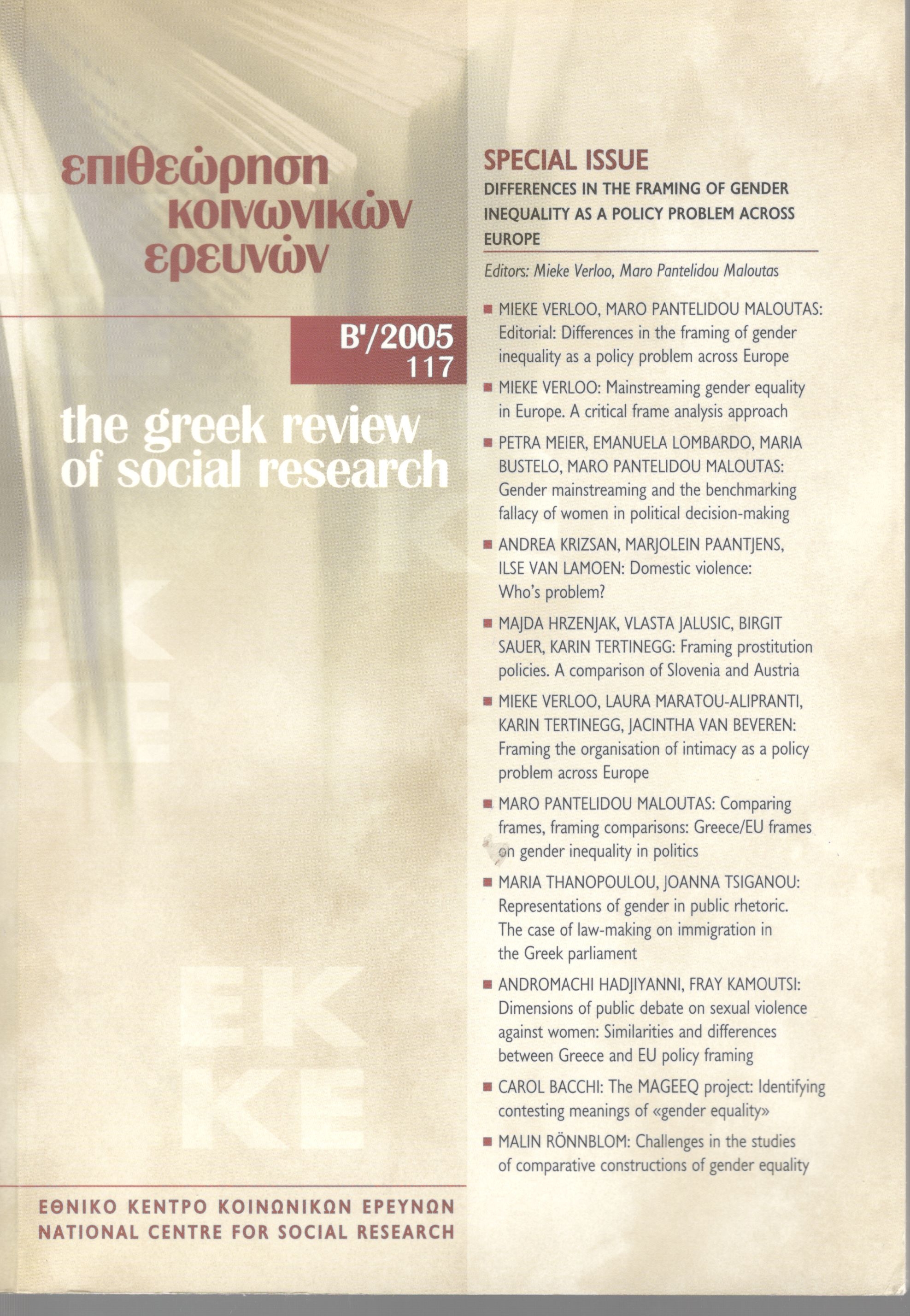Framing prostitution policies. A comparision of Slovenia and Austria
Abstract
In the article, the authors explore how prostitution policies as explicitly gendered policies are framed in two countries, Austria and Slovenia. These countries share many elements of historical, cultural and religious setting even if their political systems and cultures developed in different ways. The background of prostitution policies, policy environment and actors in both countries is outlined. The authors then present the frames found in the two countries and compare them. In the last part of the paper, first comparative explanations for differences and similarities in framing and policy outcome are given. The main argument is that frames on prostitution have undergone considerable changes in both countries, but conceptualisations of women as the «Other» and of «voluntary versus forced» prostitution are central to the debates in both countries.
Article Details
- How to Cite
-
Hrzenjak, M., Jalusic, V., Sauer, B., & Tertinegg, K. (2016). Framing prostitution policies. A comparision of Slovenia and Austria. The Greek Review of Social Research, 117, 93–118. https://doi.org/10.12681/grsr.9558
- Section
- Articles

This work is licensed under a Creative Commons Attribution-NonCommercial 4.0 International License.
Authors who publish with this journal agree to the following terms:
- Authors retain copyright and grant the journal right of first publication with the work simultaneously licensed under a Creative Commons Attribution Non-Commercial License that allows others to share the work with an acknowledgement of the work's authorship and initial publication in this journal.
- Authors are able to enter into separate, additional contractual arrangements for the non-exclusive distribution of the journal's published version of the work (e.g. post it to an institutional repository or publish it in a book), with an acknowledgement of its initial publication in this journal.
- Authors are permitted and encouraged to post their work online (preferably in institutional repositories or on their website) prior to and during the submission process, as it can lead to productive exchanges, as well as earlier and greater citation of published work (See The Effect of Open Access).



